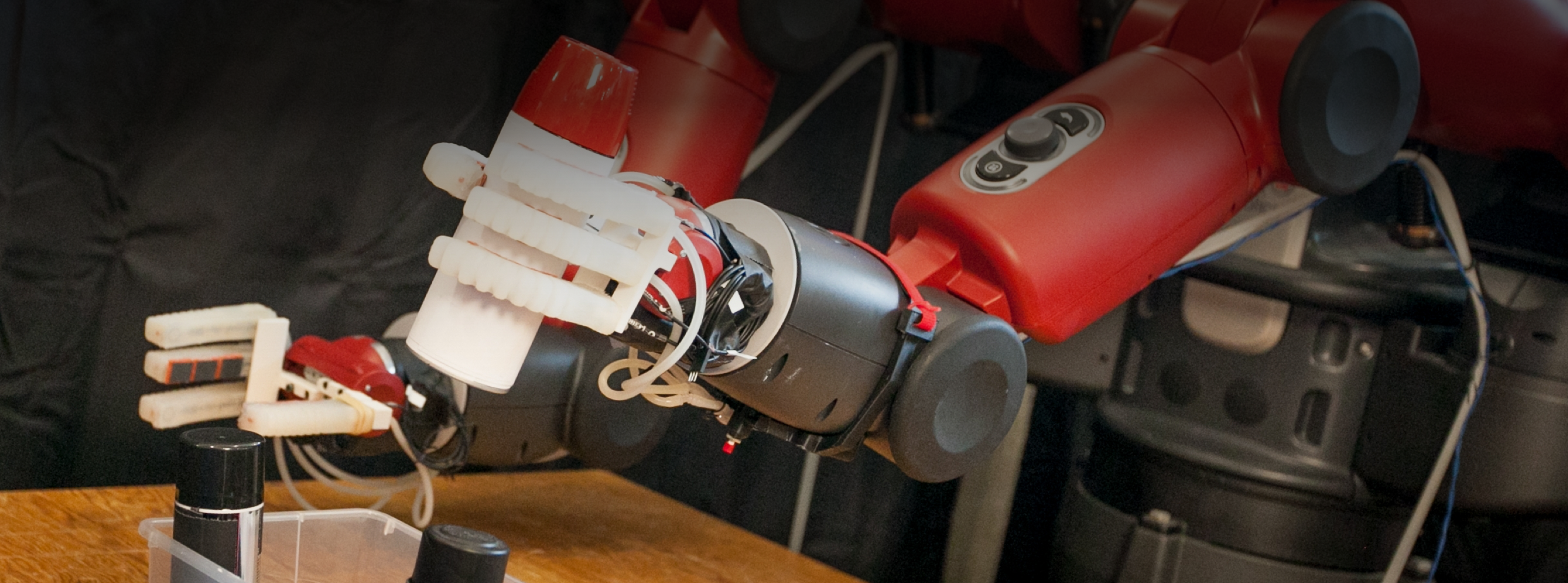WRITTEN BY: Matt Busekroos
Shen Shen began her academic journey at the Harbin Institute of Technology in China double majoring in Aeronautics and Astronautics, as well as English Literature. Shen said the language study, often through literature, history, and culture exposure, subtly assists her research at CSAIL where she is part of the Robot Locomotion Group.
The most technical papers can be thoughtfully written, according to Shen. Once Shen started paying more attention, she found styles or clever structures in the writing that makes reading more enjoyable.
“I used to think that technical writings are ‘rigid,’ that while some basics like coherence, concision, or readability still apply, none of the more ‘artistic’ tricks would be relevant or useful,” Shen said. “Fortunately, a PhD involves actually reading technical publications, and it usually starts with the well-celebrated papers, most of which are also nicely written. So very soon my view changed.”
The Robot Locomotion Group care a lot about robust and dexterous robot locomotion and manipulation, according to Shen.
She said she is interested in combining classical control theory and modern machine learning to offer scalable and verifiable learning-based solutions to complex control problems.
“To be more specific, machine learning has disrupted many fields by cracking the hard problems and offering empirically compelling solutions, but the solutions themselves have cracks too – they are well-known to be unreliable as tiny changes to the problem description can lead to completely different solutions and it’s hard to decipher why,” Shen said.
Shen said such a fragile approach can be particularly dangerous when used for safety-critical control problems like robotics control, unless the solution comes with a formal verification certificate – the kind of performance guarantee (for example, the robot remains stable or collision-free even when slightly disturbed) that can be rigorously proven as opposed to simply sample tested.
Classical control theory naturally offers many powerful and elegant tools for tackling these types of questions, according to Shen.
“Unfortunately, these tools are not directly applicable as they rely on assumptions that are rarely met by the machine learning systems, so a major challenge is how to bridge this analytical gap,” Shen said. “A secondary challenge that is how to make the techniques faster and more scalable, to push towards real-world applications.”
Shen said recent work addresses these issues.
“We are all witnessing the disruptive power of machine learning, and while it is most often associated with traditional engineering fields such as robotics or speech recognition, social scientists are directly embracing the technology more as well,” Shen said.
Shen added that it is no exaggeration that AI will impact every aspect of our daily life.
“Whether this impact would be good or bad, or by what standard do we measure the `goodness` to begin with, are still ongoing public discussions that often go into the ethical and philosophical realm,” she said. “On the technical level, however, there is no denying that currently there is a lack of clear understanding, intuitive explanation, and performance guarantee of learning-based solutions.”
Russ Tedrake advises Shen. Shen said she has learned a lot from Tedrake technically, from how to better motivate and tweak a high-level project idea to why some solutions would not make sense from his experience, down to the most detailed technical tricks.
“What perhaps is less tangible is this: he never intentionally or explicitly teaches leadership skills and work ethic, but we all get to watch him work hard constantly and lead gracefully not only our research group but also a much larger team over at the TRI (Toyota Research Institute),” Shen said. “I think that sets an excellent example for us too.”
Shen is originally from Nanjing, China. She was drawn to MIT early in her academic career.
“It started admittedly a bit blind though, as I simply was struck by the prestige and reputation and awesome anecdotes,” Shen said. “Then in college, I started to touch on research and read technical reports - and the good ones often come from [MIT]. I also talked with family and friends who are MIT alumni more about the research life than `life` life, and started to appreciate the hard work and intelligence that back up all that prestige, and truly began longing to be part of it.”
Prior to CSAIL, Shen completed a master’s degree at the MIT Media Lab, which she described as a fun and wonderful experience. She finds the two labs overlap in terms of research interest, so she was confident about the fit and eager to start her PhD at CSAIL.
Shen is currently contemplating two possible career paths upon completing her PhD at CSAIL in December.
“One is to naturally continue as a researcher, preferably in the industry,” Shen said. “The other is to slightly shift gears and teach in a university or high school, where dedicated teaching staffs are crucial but often in short supply.”
Shen said will miss the diverse and collaborative community of the lab upon completing her PhD. Shen said the inclusive mindset goes beyond the academics, referencing MIT President Rafael Reif’s recent public letter taking a supportive stance toward immigrant scholars. She said the letter went viral in China, especially among the younger generation.
“I was so very touched and proud, and a lot of my fellow MITers felt the same way,” Shen said.

